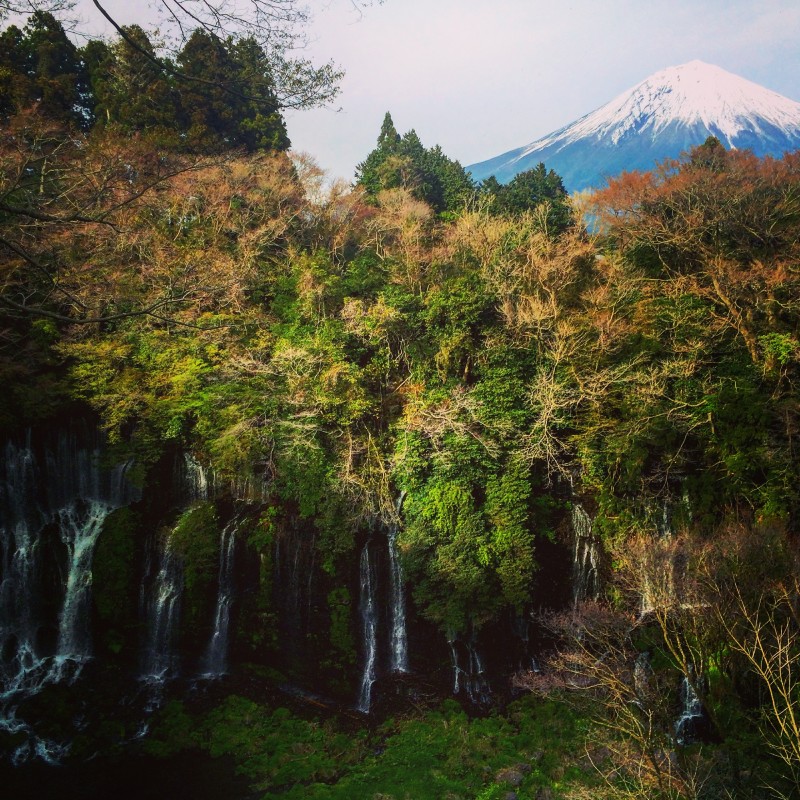10th International Conference on the Applications of Stable Isotopes Techniques to Ecological studies 2016: Japan
Katie St John Glew
NOCS

At the beginning of April I was extremely fortunate to attend and present at the 10th International Conference on the Applications of Stable Isotopes to Ecological studies (IsoEcol 2016) in Tokyo, Japan.
IsoEcol is a biannual conference bringing together isotope ecologists from across the globe, studying different ecosystems and using isotopes to answer a magnitude of ecological questions. I gave an oral presentation titled “Marine animal assignment to UK shelf sea isoscapes – validation and implications for conservation and fisheries policy” where I discussed the process of creating isoscapes (maps of isotopes), geolocating different marine animals to their foraging locations within this environment and outlining the implications and current limitations of this method.
This was a really useful opportunity to discuss my research with world experts and receive advice and valuable suggestions on possible developments and improvements, particularly at this early stage if my career. It was also a fantastic opportunity to gain further contacts for future research both during and following my PhD.
The conference was not all work; we also had the opportunity to explore the beautiful scenery, with an excellent day trip to visit Mount Fuji and the surrounding countryside. I had the chance to taste amazing Japanese food and experience both the traditional culture and modern quirkiness of Japan.
I had a fantastic time and feel I gained a huge amount of knowledge, advice and useful contacts during my time at this conference. I would like to thank the Challenger Society for Marine Science for awarding me a travel grant and allowing me to experience this amazing opportunity.
Profile:
My name is Katie St. John Glew and I am a second year PhD student at the University of Southampton. My PhD research is on creating UK Shelf Sea isoscapes, which are maps of isotope values, measured in jellyfish collected around the UK. Using these maps I am developing a method to retrospectively geolocate different marine animals to their foraging locations by looking at the differences in isotope values in their body tissues and the baseline isotopic signature in the isoscapes. Throughout the course of my PhD I will be looking at the benefits and limitations of such techniques and the implications for conservation and fisheries policy.
1st time presenting at my 1st international conference – Marine animal assignment to UK shelf sea isoscapes #Isoecol10 Thanks @challengersoc
Latest News
Royal Society Publishing Photography Competition 2025
Please see a message from the Royal Society below:
We are delighted to announce that the 2025 Competition is now open for entries until 15 August for a chance to win £1000! The competition celebrates the power of photography in conveying the wonder of science happening all around us and photographs can be submitted in the categories of: Astronomy, Behaviour, Earth Science and Climatology, Ecology and Environmental Science, and Microimaging.
The competition is free to enter and open to anyone studying or working in science at graduate level or above. Category winners will receive a one-year membership to the Royal Photographic Society and the overall winner will receive a grand prize of £1,000. Find out more: https://bit.ly/RSPphotocomp
October 2025 MEDIN Workshop: Marine Data Management, Governance and the MEDIN toolset
The Marine Environmental Data and Information Network (MEDIN) are pleased to announce that registration is now open for the next occurrence of our popular free online training workshop: ‘Marine Data Management, Governance and the MEDIN toolset’ on the 13th – 17th October 2025 on OceanTeacher Global Academy.
Marine Data Management, Governance and the MEDIN toolset
The Marine Environmental Data and Information Network (MEDIN) and OceanWise are delighted to invite you to attend our popular free online training workshop: ‘Marine Data Management, Governance and the MEDIN toolset’ on the 19th – 23rd of May 2025.
